Our accountants will process BAS, Payroll*, Bookkeeping and Tax Returns. We ensure you are always up to date with your ATO obligations. Unlimited support, for a fixed monthly fee, all backed by our guarantee. We will represent you in the case of any ATO audits.

| Bookkeeper | Accountant | |
| Roles & Responsibilities | Bookkeepers are responsible for the day-to-day financial transactions of a business. Their primary tasks include recording financial data, such as sales, purchases, expenses, and payments, into an accounting system. They also reconcile bank statements, manage payroll, and maintain financial records. Bookkeepers focus on the accurate and organised recording of financial data. | Accountants take a more comprehensive and analytical approach to financial data. They analyse, interpret, and summarise the financial information provided by bookkeepers. Accountants prepare financial statements, such as income statements, balance sheets, and cash flow statements. They also provide financial insights, tax planning, and strategic advice. Accountants play a crucial role in helping businesses make informed financial decisions and ensure compliance with tax laws and regulations. |
| Education & Certification | While formal education and certification are not always required to become a bookkeeper, many bookkeepers choose to pursue relevant training and certifications, such as becoming a Certified Bookkeeper (CB) or obtaining an associate degree in accounting or bookkeeping. Bookkeepers often have a solid understanding of basic accounting principles. | Accountants typically meet more extensive educational requirements. They often hold a bachelor’s degree in accounting or a related field and may pursue advanced degrees or professional certifications such as a Certified Practising Accountant. |
| Analysis & Interpretation | Bookkeepers focus on the accurate recording and organisation of financial data. While they may perform some basic financial analysis, their primary role is data entry and record-keeping. | Accountants are trained to analyse financial data and provide valuable insights. They can help businesses understand their financial performance, identify trends, make strategic decisions, and optimise tax planning. Accountants often work closely with business owners or management to offer financial advice and planning. |
| Tax & Regulatory Compliance | Bookkeepers ensure that financial records are accurate and up to date, making it easier for accountants to prepare tax returns and comply with regulatory requirements. They may also assist in maintaining records for tax reporting. | Accountants have a deeper understanding of tax laws and regulations. They help businesses optimise their tax strategy, prepare and file tax returns, and provide guidance on tax compliance. They are well-versed in Australia’s tax landscape and can provide practical advice to ensure your business is compliant with ATO regulations. |

Balance sheets, income statements, and cash flow statements generally make up the ‘financial statements’ of a small business and they are three of the most important documents that outline a business’s financial health, performance, and cash flow. Each of these statements provides different insights into a company’s financial situation.
A business balance sheet is a snapshot of a company’s financial position at a specific point in time, typically at the end of an accounting period (e.g., a month, quarter, or year). It details the following key elements:

Resources and items of value owned by the company, such as cash, accounts receivable, inventory, property, and equipment.

Debts and obligations owed by the company, including loans, accounts payable, and accrued expenses.

The residual interest in the assets of the company after deducting liabilities. It includes owner’s equity, retained earnings, and other components.
The fundamental accounting equation is reflected in the balance sheet: Assets = Liabilities + Equity. This equation ensures that the balance sheet remains balanced
Also known as the Profit and Loss Statement (P&L), an Income Statement provides a summary of a company’s financial performance over a specific period, such as a month, quarter, or year.
Typically it will detail:

The total income generated from the sale of goods or services.

The costs and expenditures incurred to operate the business, including salaries, rent, utilities, and other operating expenses.

The result of subtracting total expenses from total revenues. A positive net income indicates a profit, while a negative net income indicates a loss.
The income statement helps assess whether a business is profitable and how efficiently it is managing its expenses.
A cash flow statement provides a detailed breakdown of a company’s cash inflows and outflows over a specific period. It is typically divided into three main sections:

This section accounts for cash flows generated from the company’s primary operations, such as sales and expenses.

This section records cash flows related to the purchase or sale of long-term assets, like equipment or investments.

This section includes cash flows related to the company’s financing, such as taking out loans or repaying debt.
The cash flow statement helps assess a company’s liquidity, its ability to generate cash from its operations, and its dependence on external financing.
These financial statements are essential tools for business owners, investors, lenders, and other stakeholders to understand a company’s financial position, profitability, and cash flow.
They are also crucial for decision-making, financial planning, and regulatory reporting. Analysing these statements collectively provides a comprehensive view of a company’s financial performance and allows for informed, strategic forward planning.

We envisage a future where every small business can get the right advice, at the right time, at the right price.
Accountant fees can vary significantly based on several factors, including the complexity of the work, location, experience and qualifications and the size and nature of your business. Here are some general guidelines to help you understand the potential cost of hiring an accountant:

Many accountants charge on an hourly basis, with rates typically ranging from $100 to $350 per hour (or even more for highly specialised services).

Accountants may offer ongoing services, such as financial management, accounting, and tax planning, on a monthly or annual retainer basis. These packages can vary in cost based on the level of service and the size of your business.

The cost of accounting services may depend on the size and complexity of your business. A small sole trader may pay less for accounting support compared to a larger business with multiple locations, employees, and complex financial transactions.

The specific services you need will also impact the cost. Simple tasks like preparing individual tax returns are typically less expensive than complex services like lodging BAS and GST statements and preparing financial statements.

Accountants with more experience or higher qualifications, such as Certified Practising Accountants (CPAs) or Chartered Accountants (CAs), may charge higher rates for their expertise.
While fees are a major factor when selecting the right accountant for your business, also consider the value that a qualified accountant can provide in terms of financial management, tax optimisation, compliance, and overall financial health.
Accounting involves recording, summarising, and analysing financial transactions. It helps businesses track income and expenses, ensure compliance with regulations, and make informed financial decisions.
Bookkeeping is the process of recording daily financial transactions, while accounting involves interpreting, classifying, analysing, and summarising that financial data to provide insights into the financial health of a business.
The main types include financial accounting, management accounting, tax accounting, and auditing. Each serves different purposes, from reporting financial performance to planning business strategy and ensuring compliance with tax laws.
Cash flow measures the movement of money in and out of a business. Good cash flow management is crucial to ensuring that a business can pay its expenses, invest in growth, and remain solvent.
The basic financial statements are balance sheets, Profit and Loss statements, and cash flow statements. These documents provide a comprehensive view of a business’s financial position, performance, and cash flow over a specific period.
*Retinue’s payroll service includes the processing of hours and wages rates provided by you. We do not determine award rates for your employees or provide advice on the correct employment status of your employees. It is your responsibility to ensure that your employees are paid correctly and we recommend obtaining advice from specialised employment relations experts.
*Retinue’s (ABN 66 658 618 449) payroll service includes the processing of hours and wages rates provided by you. We do not determine award rates for your employees or provide advice on the correct employment status of your employees. It is your responsibility to ensure that your employees are paid correctly and we recommend obtaining advice from specialised employment relations experts.
Protection is only provided for ATO investigations notified to us during the period which you are a client and relating to any tax returns or lodgements prepared by us. Fines includes any penalties and interest that may result from any errors made by us but does not include any additional tax liability that may result from an amended lodgement.
Liability limited by a scheme approved under Professional Standards Legislation.